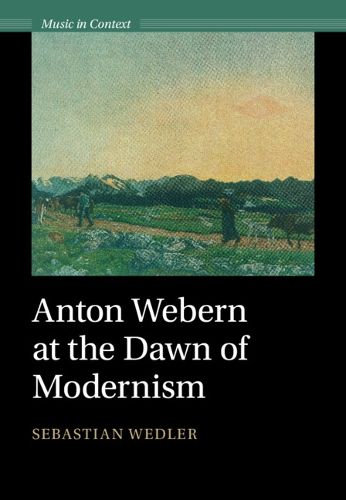Readings Newsletter
Become a Readings Member to make your shopping experience even easier.
Sign in or sign up for free!
You’re not far away from qualifying for FREE standard shipping within Australia
You’ve qualified for FREE standard shipping within Australia
The cart is loading…






Anton Webern is recognised as one of the pivotal figures of atonality and precursors to post-war serialism. However, his earlier, tonal works have been largely neglected and shrouded in cliches. A study of both the generative elements of Webern's aesthetic imagination, and the philosophical signatures of musical modernity, this first book-length account of Webern's tonal music explores the complex and variegated ways in which the young composer engaged with, and sought to contribute to, the cultural discourses of fin-de-siecle modernism, well before he self-consciously embarked upon his famous 'path' to the New Music. While acknowledging the rapid stylistic transformation that Webern's musical language underwent, the author suggests that earliness in Webern is not simply a chronological term but is rather best understood in terms of a constitutive tension between phenomenological and dialectical modes of musical thought.
$9.00 standard shipping within Australia
FREE standard shipping within Australia for orders over $100.00
Express & International shipping calculated at checkout
Stock availability can be subject to change without notice. We recommend calling the shop or contacting our online team to check availability of low stock items. Please see our Shopping Online page for more details.
Anton Webern is recognised as one of the pivotal figures of atonality and precursors to post-war serialism. However, his earlier, tonal works have been largely neglected and shrouded in cliches. A study of both the generative elements of Webern's aesthetic imagination, and the philosophical signatures of musical modernity, this first book-length account of Webern's tonal music explores the complex and variegated ways in which the young composer engaged with, and sought to contribute to, the cultural discourses of fin-de-siecle modernism, well before he self-consciously embarked upon his famous 'path' to the New Music. While acknowledging the rapid stylistic transformation that Webern's musical language underwent, the author suggests that earliness in Webern is not simply a chronological term but is rather best understood in terms of a constitutive tension between phenomenological and dialectical modes of musical thought.